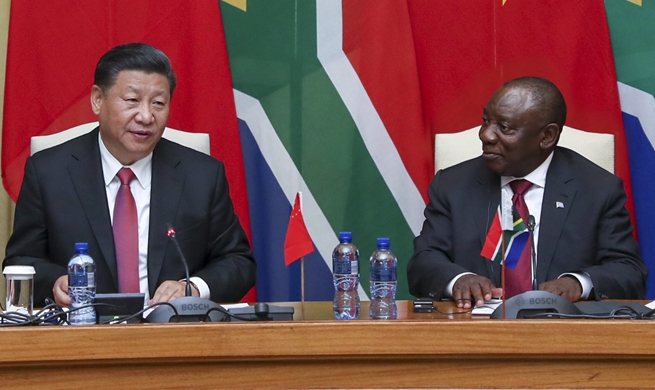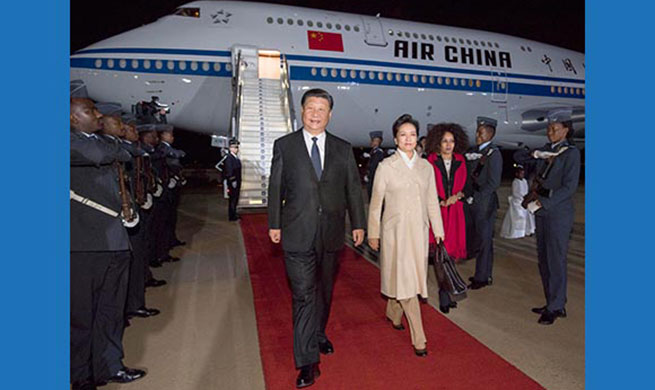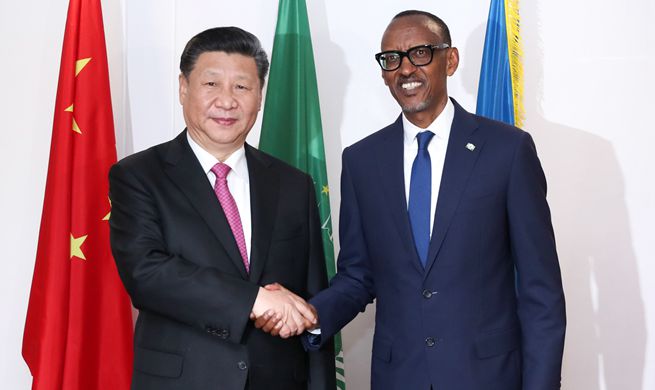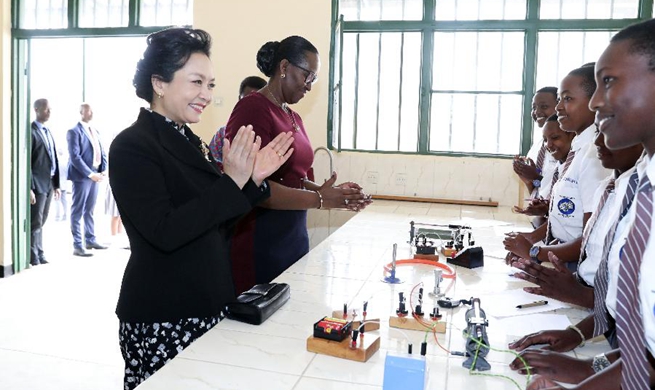ADDIS ABABA, July 24 (Xinhua) -- Ethiopian Prime Minister Abiy Ahmed and Eritrean President Isaias Afwerki on Tuesday reiterated their strong commitment towards sustaining the historic peace agreement that ended two decades of armed standoff among the two East African countries.
In a joint statement issued after a tripartite meeting held in Abu Dhabi, the UAE, on Tuesday between Ahmed and Afwerki hosted by Sheikh Mohammed bin Zayed Al Nahyan, the Crown Prince of Abu Dhabi, the three leaders hailed the peace agreement as a "historic peace deal."
After 20 years of hostility, Ethiopia and Eritrea resumed diplomatic relations this month. On July 8, Ethiopia's Prime Minister, Abiy Ahmed, made a landmark visit to the Red Sea nation and a week after, Eritrea's President, Isaias Afwerki, paid a visit to Ethiopia.
Leaders of the two countries have agreed to end the situation and forge closer political, economic and social connections.
Amid the easing tensions, telecom services between the two countries have resumed, and Eritrea has reopened its embassy in Addis Ababa. Ethiopian Airlines also started regular flights to Asmara last week.
The three leaders noted that the peace accord among East Africa's long-time rivals has paved the way for improved bilateral relations and contributes to the security and stability of the two countries, the Horn of Africa and the wider region, according to the joint statement.
The three countries further called upon the international community to support this historic and constructive agreement to promote peace, stability and development.
Zayed "praised the wisdom of President Afwerki and Prime Minister Ahmed, and commended the bold historic step that led to the signing of a peace agreement between the two countries, which reflects their astute statesmanship and paves the way for years of stability, development and prosperity for the neighboring countries," the joint statement read.
The UAE further affirmed its support for the peace agreement between the two countries.
Following Eritrea's separation from Ethiopia in 1991, a border dispute had contributed to two years of armed conflict starting in 1998, which killed more than 70,000 people from both sides.
The UN Development Program (UNDP) Resident Representative and UN Humanitarian Coordinator to Ethiopia, Ahunna Eziakonwa-Onochie, recently dubbed Ethiopian and Eritrean leaders decision as a role model to the international community.
"We are facing a world where many leaders are not promoting this kind of reconciliation and bridge building," Eziakonwa-Onochie said.
"The two countries, in agreeing to this peace deal, have demonstrated leadership that we need to tell the world not to build walls between the hearts of families, communities and nations," she added.
The Institute for Security Studies (ISS), an African non-profit organization, in its latest publication has also indicated that the "entire Horn of Africa region will benefit" from the restart of good relations among the two East African nations.












